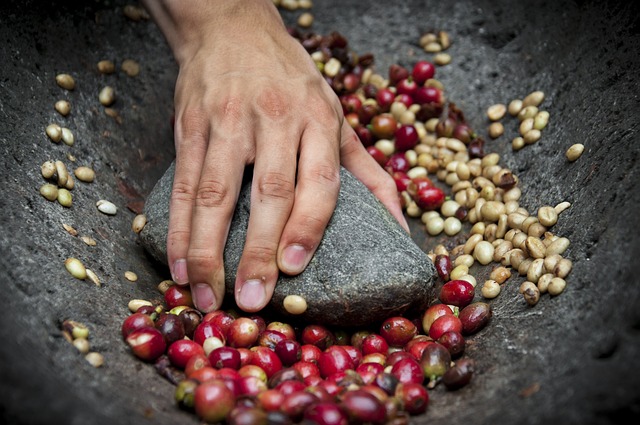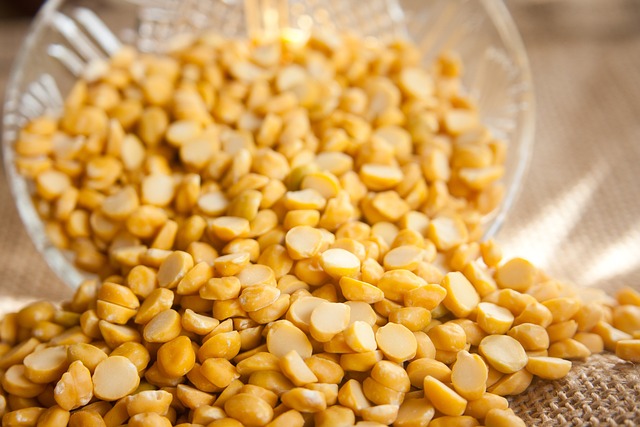Kidney beans are a nutrient-dense legume with ancient origins and contemporary health benefits. They offer high protein, fiber, and complex carbohydrates that contribute to blood sugar control, satiety, and digestive health, making them an ideal inclusion in plant-based diets. These beans also provide essential nutrients like iron and B vitamins, which are vital for energy and overall wellness. Their versatility allows for a variety of cooking methods—including soaking to enhance texture and nutrient absorption—and they can be incorporated into countless dishes such as soups, salads, stews, and casseroles. Cooking kidney beans until tender not only improves flavor but also reduces anti-nutrients like phytates, thereby increasing the health benefits. For those concerned with cholesterol management, kidney beans are particularly advantageous due to their soluble fiber content, which can help bind and eliminate cholesterol from the body. They also support heart health by being low in fat and free of cholesterol. The inclusion of kidney beans in a balanced diet is a smart move for anyone looking to reap the health benefits associated with a plant-based lifestyle, especially for cholesterol control and stable blood sugar levels. Proper preparation is key to maximizing their nutritional value and ensuring they are both flavorful and beneficial for health.
Dive into the rich tapestry of kidney beans, legumes that have nourished civilizations for millennia. From their humble beginnings to their modern-day status as a nutritional powerhouse and a versatile ingredient in countless cuisines, kidney beans have carved out a significant place in the world’s dietary patterns. This article peels back the layers of history to uncover the origins of kidney beans, delve into their health benefits, and explore the myriad ways they can be incorporated into a plant-based diet. Discover how these beans are not just a staple in traditional recipes but also play a pivotal role in managing cholesterol levels and blood sugar control, making them an ideal food choice for those with diabetes. Join us as we trace the journey of kidney beans from farm to fork and reveal the science behind their contribution to heart health. Whether you’re a seasoned chef or a health-conscious eater, this exploration will provide you with valuable insights into the cultivation, variety, and culinary adaptability of kidney beans, ensuring your kitchen repertoire is both diverse and nutritious.
- Unraveling the Origins of Kidney Beans: A Journey Through Time and Cultivation
- The Nutritional Powerhouse: Health Benefits of Kidney Beans in Your Diet
- Culinary Excellence: Diverse Ways to Incorporate Kidney Beans into Your Cooking
- Kidney Beans and Cholesterol: Understanding the Relationship
Unraveling the Origins of Kidney Beans: A Journey Through Time and Cultivation
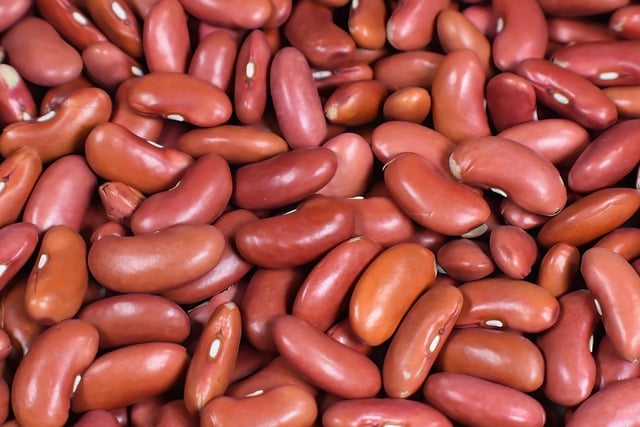
The origins of kidney beans trace back to ancient civilizations in both North and South America, with evidence suggesting their cultivation as far back as 7000 BCE. These legumes, revered for their health benefits and versatility in cuisines across the globe, were a staple for indigenous peoples. Fast forward to today, and kidney beans remain a cornerstone in many diets due to their rich nutritional profile. They are an excellent source of protein for those following a plant-based diet, helping to manage cholesterol levels and contribute to blood sugar control.
Kidney beans’ health benefits extend beyond their nutrient density; they are also a delightful addition to a variety of dishes. Incorporating kidney beans into your meals can enhance flavor while providing a fiber-rich, low-fat component that supports satiety and digestive health. The versatility of kidney beans in the kitchen is unparalleled. They can be prepared in numerous ways: boiled, steamed, baked, or used as an ingredient in salads, stews, soups, and casseroles. Whether you prefer them tender and mild or with a firmer texture and more robust flavor, understanding how to cook kidney beans is essential for harnessing their full culinary potential. Proper preparation involves soaking the dried beans overnight, which not only softens them but also diminishes antinutrients that can inhibit nutrient absorption, ensuring that you reap the most benefits from this nutritious legume.
The Nutritional Powerhouse: Health Benefits of Kidney Beans in Your Diet

Kidney beans, a legume prized for their distinctive shape and nutritional prowess, offer a plethora of health benefits that make them a valuable addition to any diet. These beans are a veritable treasure trove of nutrients; they’re high in protein, fiber, and complex carbohydrates, which contribute to blood sugar control and satiety. For those adhering to a plant-based diet, kidney beans provide an excellent source of iron and B vitamins, essential for maintaining energy levels and overall health. Their high fiber content also promotes digestive regularity and heart health by helping to lower cholesterol levels. Including kidney beans in your meals can be as simple as adding them to soups, salads, or stews. Soaking and cooking kidney beans properly is key to enhancing their digestibility and maximizing nutrient absorption. When preparing kidney beans, ensure they are fully cooked until tender, which not only improves flavor but also ensures that anti-nutrients like phytates are reduced, making them more accessible for the body to utilize.
Incorporating kidney beans into your culinary repertoire is a strategic choice for those looking to optimize their health. They’re particularly beneficial for individuals with diabetes or those aiming to manage their blood sugar due to their low glycemic index. The slow release of glucose from kidney beans helps maintain stable blood sugar levels, which can prevent spikes and troughs in energy and mood. Additionally, the high protein content in kidney beans makes them an ideal food for muscle repair and growth. Their versatility extends beyond health benefits; they’re a chameleon in the kitchen, absorbing the flavors of surrounding ingredients, making them a delightful addition to a myriad of dishes. From traditional chili to vibrant salads, the possibilities are as boundless as their nutritional advantages.
Culinary Excellence: Diverse Ways to Incorporate Kidney Beans into Your Cooking
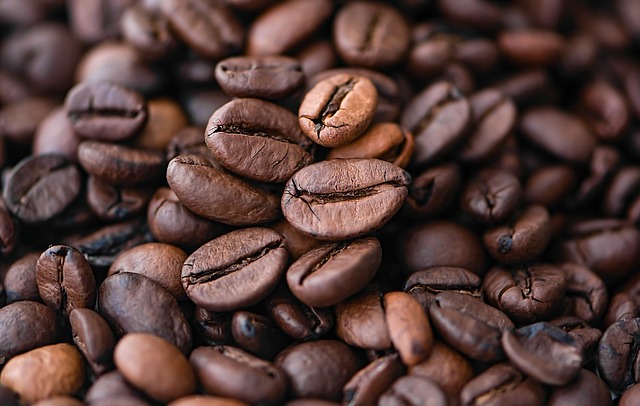
Kidney beans are a versatile and nutritious ingredient that can elevate any dish with their rich flavor and health benefits. For those following a plant-based diet, kidney beans are an excellent source of protein, making them a valuable addition to a variety of meals. Their ability to absorb the flavors of spices and seasonings allows for endless culinary possibilities. Whether you’re preparing a hearty chili, a traditional Indian dal, or a fresh salad, kidney beans provide a satisfying texture that complements an array of cuisines.
Incorporating kidney beans into your cooking offers numerous health advantages. They are low in fat and free of cholesterol, making them a heart-healthy option. These legumes have a high fiber content, which aids in blood sugar control and promotes digestive health. Additionally, the high protein and iron contents contribute to overall well-being, especially for vegetarians and vegans who may be looking to replace meat in their diet. Preparing kidney beans is straightforward: they can be boiled, steamed, or pressure-cooked to tenderness. For a quick meal, consider using canned kidney beans as a time-saving alternative. Regardless of the method, ensure they are well rinsed to remove any excess sodium or preservatives. By integrating kidney beans into your recipes, you’re not only enhancing the nutritional profile of your dishes but also embracing a wide range of flavorful and wholesome meal options.
Kidney Beans and Cholesterol: Understanding the Relationship
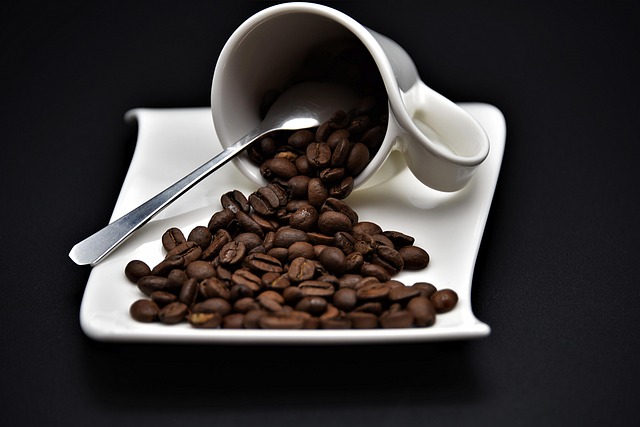
Kidney beans are a staple in many diets around the world, revered for their health benefits and versatility in various cuisines. As part of a plant-based diet, kidney beans are particularly beneficial due to their low fat content and the absence of cholesterol. The relationship between kidney beans and cholesterol is particularly noteworthy; they contain soluble fiber, which can bind with cholesterol in the digestive system and help remove it from the body. This aspect makes them a powerful tool in managing and lowering cholesterol levels, contributing to heart health. Moreover, incorporating kidney beans into your diet is an excellent way to support blood sugar control due to their high protein and fiber content. These nutrients slow down the conversion of carbohydrates into glucose, leading to a more gradual increase in blood sugar levels after meals, which is advantageous for those managing diabetes or insulin resistance.
Cooking kidney beans is straightforward, with several methods available to suit different tastes and dietary requirements. They can be boiled, steamed, baked, or even sprouted to enhance their digestibility and nutritional value. For those looking to include more plant-based options in their meals, kidney beans are a versatile ingredient that can be used in salads, stews, soups, and as the base for plant-based burgers or meat substitutes. Their hearty texture and flavor complement a myriad of spices and seasonings, allowing for endless culinary possibilities. Including kidney beans as part of a balanced diet can contribute to overall health by providing essential nutrients without the additional burden of cholesterol, making them a wise choice for anyone looking to reap the health benefits associated with plant-based eating.
Kidney beans emerge as a remarkable legume with a storied history, rich nutritional profile, and versatile culinary applications. Originating from ancient civilizations, they have journeyed through time to become a staple in kitchens worldwide. Their health benefits are manifold, offering significant contributions to a plant-based diet by aiding in blood sugar control and cholesterol management, making them an excellent option for those conscious of their heart health and overall well-being. Whether incorporated into traditional dishes or used as a creative ingredient in modern cooking, kidney beans demonstrate their utility and taste across diverse cuisines. This exploration of kidney beans not only unveils their origins but also highlights the importance of incorporating these nutrient-dense beans into a balanced diet for sustained health.
